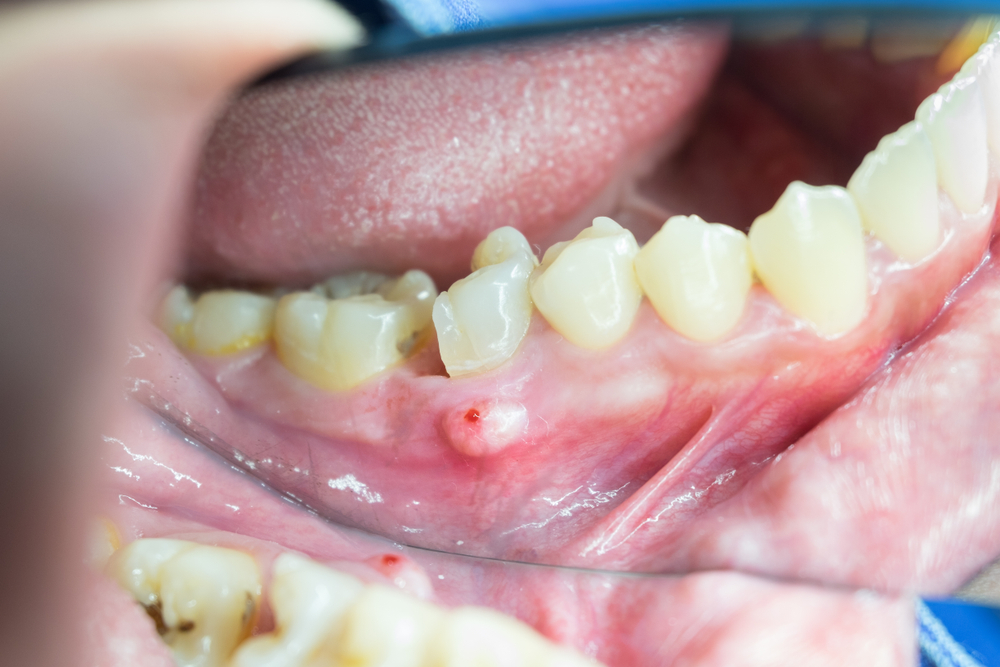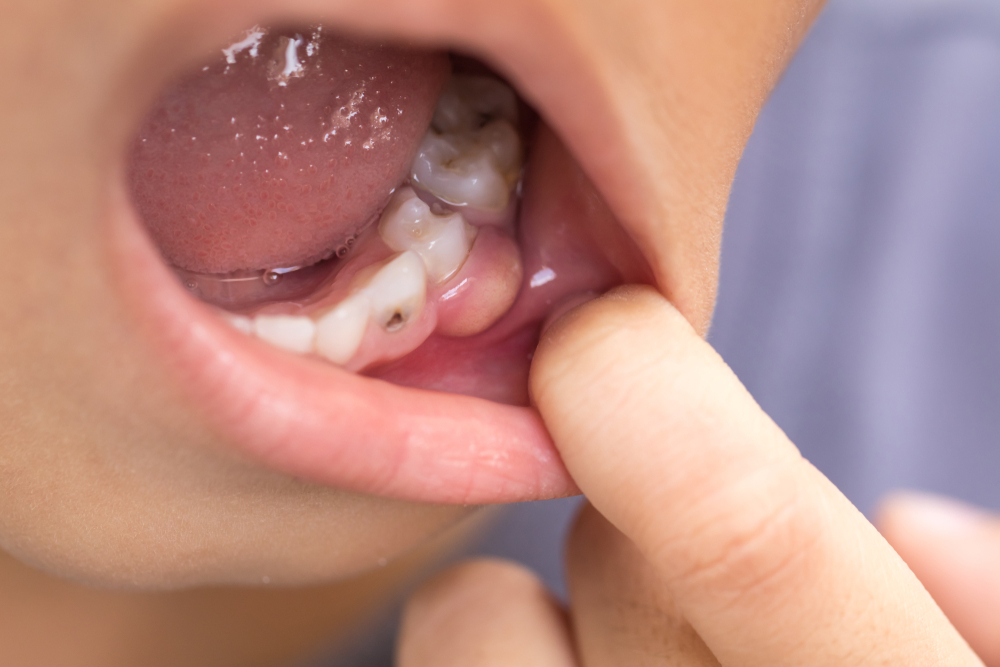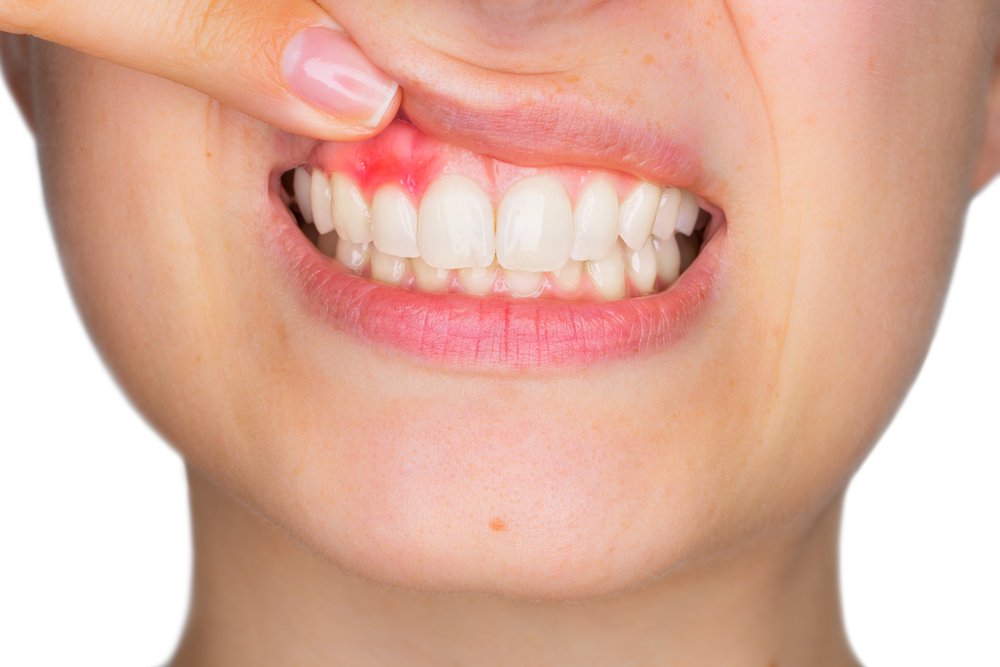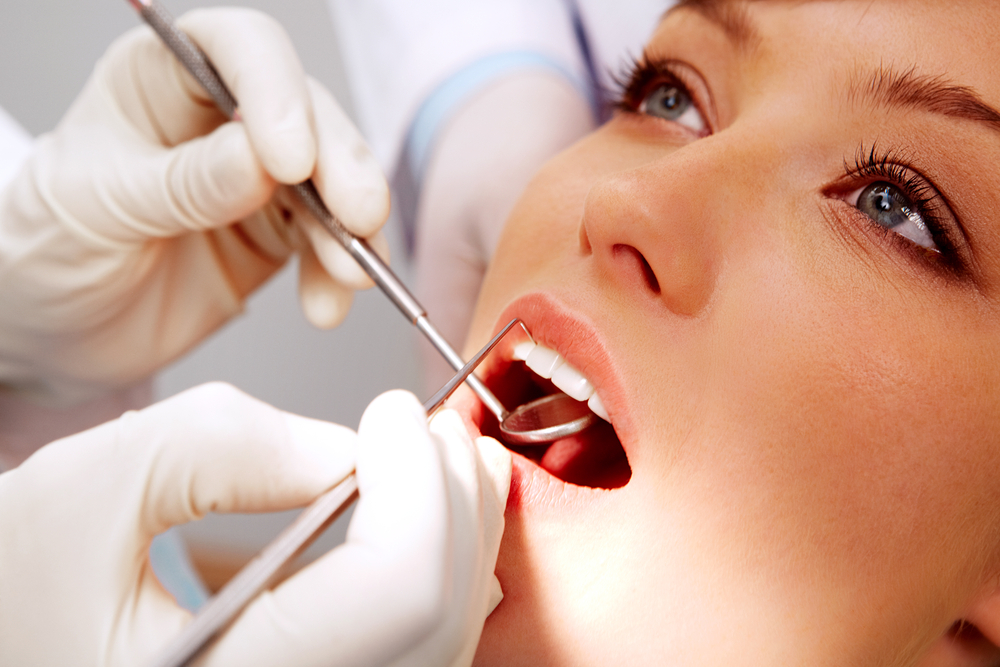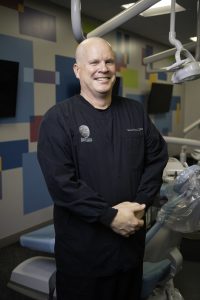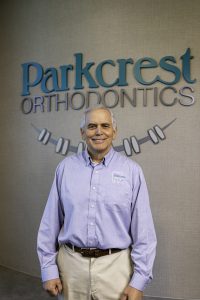Parkcrest Dental Group provides dental care for everyone in your family.
One thing our doctors can treat is an abscessed tooth. Unfortunately, we see these every once in a while in our dental practice.
In today’s blog, our dentists answer some frequently asked questions about abscessed teeth.
What is an abscessed tooth?
An abscessed tooth is marked by a pocket of pus resulting from a bacterial infection.
Where can an abscess form on a tooth?
You could find an abscess on at the tip of a root, on the gum next to the root of a tooth, or on the gums near the tooth.
What causes an abscessed tooth?
Bacteria invade parts of your gums or soft tissues surrounding or inside your teeth (known as dental pulp). These microscopic attackers may enter your tooth through a chip or crack in the tooth before spreading down into the roots. Tooth decay may also cause bacteria to spread to softer parts of the tooth or gums.
How can I tell I have an abscessed tooth?
You may notice throbbing pain near a tooth or in your gums as the main sign you have an abscessed tooth. The pain typically comes on suddenly. It could also get worse as it progresses over time.
If any of the following happen, they might be another sign or symptom of an abscessed tooth:
- Your teeth become sensitive.
- Gums get red and swollen.
- Pain when you chew or bite with your teeth.
- Your pain gets worse when you lie down.
- The pain you feel radiates away from the mouth and progresses to your ear, jaw, or neck.
- Teeth appear discolored or loosen.
- You have bad breath.
- A foul taste forms in your mouth.
Can an abscessed tooth go away on its own?
Typically, no, and a dentist can help you treat your abscessed tooth.
How can I treat the pain of an abscessed tooth at home?
You should still see your dentist to fully treat an abscessed tooth.
However, you can do things for the pain before you see a dentist.
- Rinse with saltwater two to three times a day.
- Rinse with a diluted mixture of hydrogen peroxide and water.
- Take the recommended dosage of ibuprofen or naproxen.
- Create a rinse with ½ tablespoon baking soda, ½ tablespoon water, and a tiny bit of salt and swish it around in your mouth.
- Grind a clove of garlic into a pulp and rub it carefully against the affected area. Garlic has allicin in it, which is a natural antimicrobial substance.
- Drink lukewarm fenugreek tea for its anti-inflammatory properties.
- Apply a cold compress on the affected area for fast results.
What can increase the risk of an abscessed tooth in my mouth?
Certain things may hasten the onset of an abscessed tooth if you do not change your oral health, including:
Poor oral hygiene. It’s important to brush and floss your teeth every day to make sure your teeth’s enamel doesn’t wear away from acid buildup and bacterial growth.
High-sugar diet. Eating and drinking sugary foods, like candy, soda, sweets, and juices with added sugar, can cause tooth decay and cavities. These problems could lead to bigger issues like an abscessed tooth.
Dry mouth. Having a dry mouth may harken tooth decay faster. You might get dry mouth due to a side effect of certain medications or when you get older.
How does my dentist treat an abscessed tooth?
A dentist will recommend a course of treatment based on the type of abscess in your mouth and how severe it is.
The treatment involves alleviating the pain and clearing up the infection.
- You will receive a thorough dental examination by a dentist who will look in your mouth for any signs of the abscess.
- Your doctor may take a dental X-ray to check for any unseen damage not easily detectable during a visual examination.
- Discuss your treatment options with you dentist. Your dentist will precisely describe what will happen, when, and why during your treatment.
- You have a few choices when it comes to a treatment regimen:
a) Draining the abscess, if it’s visible. Following this, your doctor will thoroughly clean the area to prevent the infection from spreading. This typically happens with a saltwater rinse.
b) Root canal, if the abscess is in your tooth’s soft tissue. This involves cleaning out the infected parts of your decayed tooth and placing a crown on it to protect the core of the tooth while strengthening it.
c) An extraction to completely remove the infected tooth. This might happen if your tooth is too damaged to save. After pulling the tooth, your dentist will drain the abscess and clean it.
d) Remove a foreign object. Some abscessed teeth come from a foreign object caught in your gums. If this happens, your dentist will remove the object and clean up the infected part.
e) Antibiotics. Depending on the extent of the abscess, your dentist could prescribe an antibiotic to control the infection and to prevent it from spreading.
How long does it take an abscessed tooth to heal?
An abscessed tooth may take one to two weeks to heal after your dentist treats it.
What does an abscessed tooth look like?
You might see swelling or redness around your gums or the affected tooth. You could also find a small pimple near the tooth. Pus may come out of the affected area. An abscessed tooth must be taken care of immediately.
Why should I get my abscessed tooth taken care of as soon as possible?
Not only is an abscessed tooth painful, but it can also spread to other parts of your body and cause worse problems.
The infection might spread to your jaw, head, or neck. You might also suffer from sepsis, a very serious condition when an infection spreads to the rest of your body and causes a life-threatening problem.
Where can I find a dentist to help treat my abscessed tooth?
Contact Parkcrest Dental or call (417) 887-1220 for more information or to make an appointment with us. Our staff can help you if you or someone in your family needs help with an abscessed tooth.

